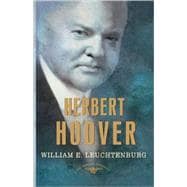
What is included with this book?
William E. Leuchtenburg, a professor emeritus at the University of North Carolina at Chapel Hill, is a noted authority on twentieth-century American history. A winner of both the Bancroft and Parkman prizes, he is the author of numerous books on the New Deal. In 2008, he was chosen as the first recipient of the Arthur M. Schlesinger Jr. Award for Distinguished Writing in American History of Enduring Public Significance.
The New copy of this book will include any supplemental materials advertised. Please check the title of the book to determine if it should include any access cards, study guides, lab manuals, CDs, etc.
The Used, Rental and eBook copies of this book are not guaranteed to include any supplemental materials. Typically, only the book itself is included. This is true even if the title states it includes any access cards, study guides, lab manuals, CDs, etc.